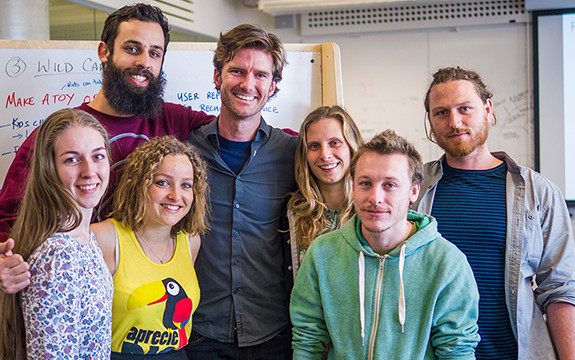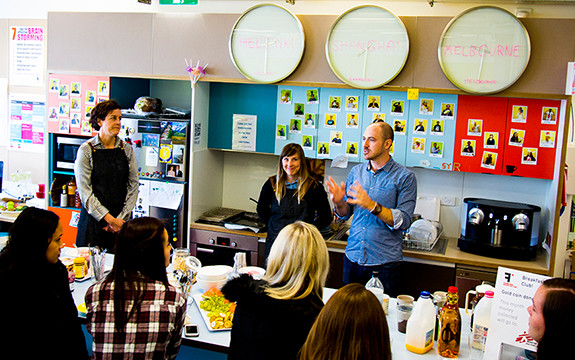Design Factory students head to Stanford University

In Summary
They don’t know who will be on their team. They don’t know who their industry partner will be and they don’t know what they will be working on for the next year. But this group of students from Swinburne University of Technology are far from nervous. If anything, they’re excited.
Next Tuesday 20 October, six Swinburne Design Factory students will be departing for Stanford University, USA, where they will embark on the year-long ME310 program.
ME310 is a course within Stanford’s Masters of Science in Mechanical Engineering, and is delivered through Swinburne Design Factory’s Honours program. It places Swinburne students placed in global teams working on a real world brief provided by an industry partner.
”Swinburne will be partnering with four universities across the globe and our students will be working with students from Japan, France, Portugal and Colombia,” John Eggleston, Design Factory Lecturer and International Projects Coordinator said.
“They will have two weeks to work together in Stanford before returning home to spend the remainder of the year working in remote collaboration on the industry sponsored projects.
“They will rely extensively on programs like Skype and our telepresence robot to communicate with each other.”
During that time the students work on tackling real-world design challenges identified by their industry partners.
At the end of their year- long projects, they will return to Stanford, where they will present the final product, system, service, digital or software based outcomes to their industry partner.
Design Innovation

The ME310 program encourages students to tackle real-life challenges using innovative design thinking methods.
“Design thinking is a human-centred approach to innovation that draws on practical, creative approaches. It encourages people to think about a better future situation, rather than focusing on a specific problem,” John Eggleston said.
This type of approach allows students to think more broadly, while also considering the specific needs of their industry partner.
Interdisciplinary teams

While it might be called the Design Factory, students who participate in the program come from a wide range of disciplines.
“We have engineering, business, designer, health and IT students all working together on projects.
“This allows the students to build on their strengths, work together in teams and also get used to communicating with people from a wide range of backgrounds.”
Ethan, a student who is about head over to Stanford, said that the interdisciplinary teams meant that it was challenging at times, but also helpful to his professional development.
“My degree is in industrial design. I spent most of my undergraduate degree working alongside other industrial designers. It’s easy to get caught up talking in industrial-design speak and forget that everyone else has no idea what you’re talking about!
“It’s been really helpful to be part of the Design Factory where you’re communicating with people from a range of backgrounds.
“Communication is such an essential skill in life and the Design Factory is great for building those skills.”

